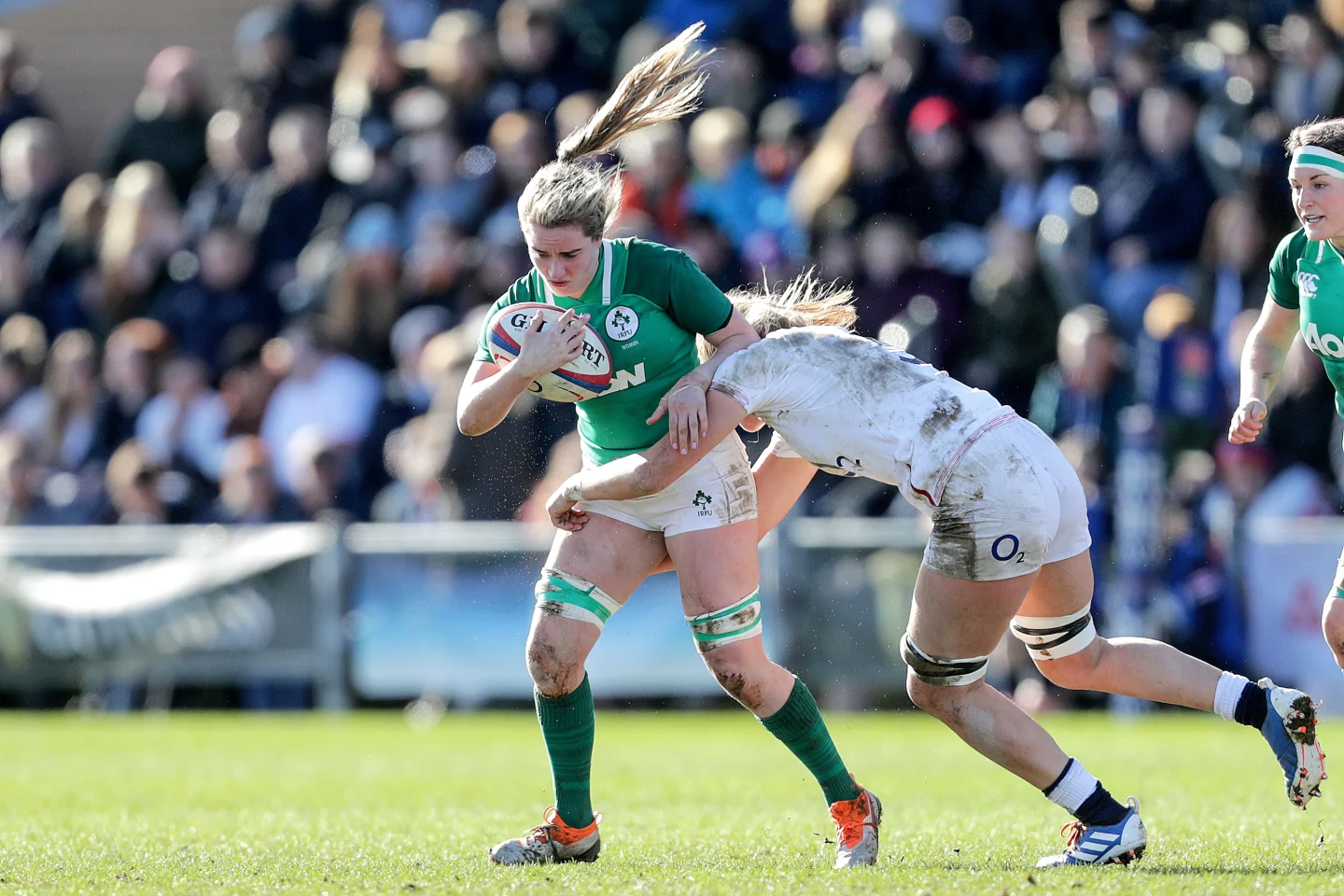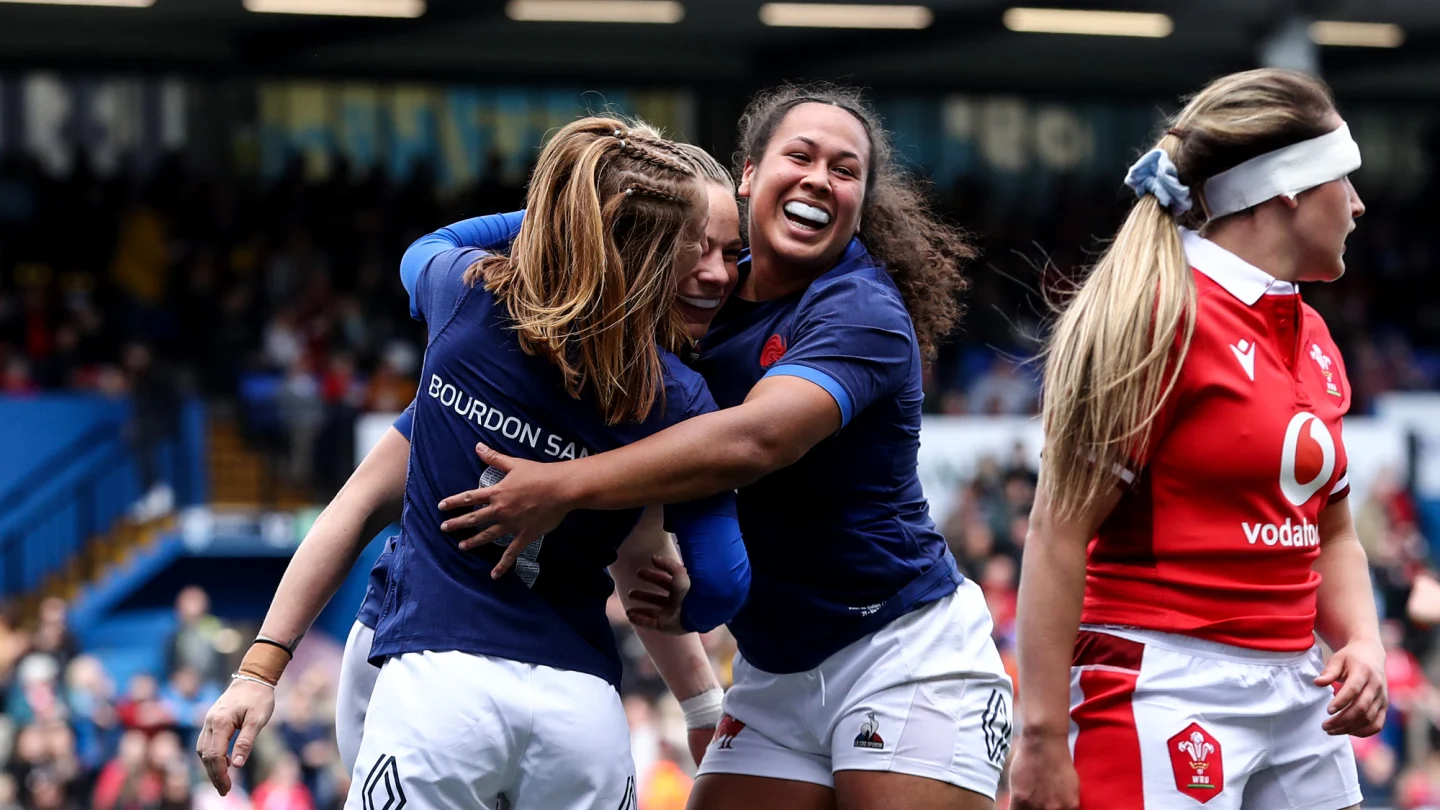6 Nations: 5 things to watch
With the 2024 women's Six Nations kicking off this weekend, we pick out five key things to look out for, from England's dominance to Ireland's recovery.
Published by Ali Donnelly , March 22nd, 2024
6 minute read

Can anyone break England’s dominance?
England have long dominated this competition and are on track for a sixth title in a row. With France, and Ireland interrupting occasionally to grab titles in the modern era, England’s success has always been accepted rather than deeply questioned. However, at a time when the competition is growing and attracting more fans, this may well have an impact on its ability to attract investment, sponsorship and attractive broadcasting deals in the long term. As important as the growing numbers in the stands are (and that is going very well indeed) money from sponsors and broadcasters is crucial to any sport’s ability to genuinely grow and reinvest in the players and the product. Playing England v France on the last weekend remains key to the competition’s ability to maintain that there is always jeopardy going into the final rounds (so long as France don’t slip up en route) but eventually England’s dominance needs to be threatened so that the narrative that this is a truly competitive tournament is actually true.
Can Ireland bounce back after their annus horribilis?
There’s no other way of describing Ireland’s 2023 tournament other than disastrous. Finishing bottom, and with negative media coverage abounding, the major question now is whether the arrival of a new head coach can help redress their fortunes. In their favour is the fact that the three games Ireland would surely consider ‘winnable’ are at home (Wales, Italy, Scotland), that they have some winning momentum, and that Scott Bemand has the opportunity to choose some sevens payers including Eve Higgins and Beibheann Parsons, who are world class. Question marks are also there about whether Ireland’s decision to use the Celtic Cup as their primary preparation arena will genuinely prepare them for test match rugby, with Wales and Scotland using it largely as a chance to develop new, up and coming or fringe players, but right now Ireland have no other choice. Bemand’s arrival could well be the most important factor, with the arrival of Declan Danaher too as defence coach also generating positive noises from the Irish camp. Perform well in France, whatever the result, and some much needed confidence will return to the Irish camp ahead of home games against Italy and Wales.
What France will turn up?
France kicked WXV off last year with a stunning win over New Zealand, before carrying on to lose to Canada and Australia. We saw similar inconsistencies last year, in particular when they came to England in the final round, going into half time 33-0 down before clawing it back to lose just 33-38. They had oped to have Caroline Drouin back in from the sevens programme to anchor the team, with Jessy Tremouliere retiring, but a knee injury has ruled her out with the inexperienced Lina Queyroi being handed the 10 shirt. She will have veteran and brilliant players like Maddasou Fall and Gabi Vernier around her - players that would grace any team in the world but the young flyhalf will be under pressure. The competition needs a consistent French team to ensure there is at least someone capable of threatening England, but under new head coaches Gaelle Mignot and David Ortiz, France haven’t seemed to settle into a style or a rhythm despite their clear capabilities. Taking the competition to the final round will be a minimum requirement surely.
The difference professionalism is making
It’s easy to forget the progress the women’s game has made in the last few years. Even a decade ago it would have been unthinkable that every team and almost every player would be contracted and paid to play for their country – now that has become the minimum expectation. Though some teams lag behind and some offer different contract types, this year once again the vast majority of players are indeed paid professionals. In an interview last week Marlie Packer reminded fans that it takes time for the switch from amateur to professional to bed in, and that the work to build habits and make progress in effectively a new job would never result in overnight success. Last year Wales, the newest then of the pro teams, showed that their fitness and strength had certainly improved in just a few short months, now with a year under their belts, it will be fascinating to see where they’ve once again made progress – albeit their growth last year will have added pressure. Ireland too have been benefitting from access to a professional programme and though not every player is centrally contracted, how they’ve managed to improve will be worth watching too.
Young talent with an eye on the World Cup
There’s a World Cup next year and this competition is an important opportunity for some newer faces to lay a claim to playing a full part in that. France have several teenagers in their squad, including the uncapped Lina Tuy and Kelly Arbey, Ireland have named a teenager on the wing this weekend for her first cap with Katie Corrigan starting, as have Scotland with Alex Stewart starting this weekend in the backrow. This is a crucial year for these new faces to shine.


